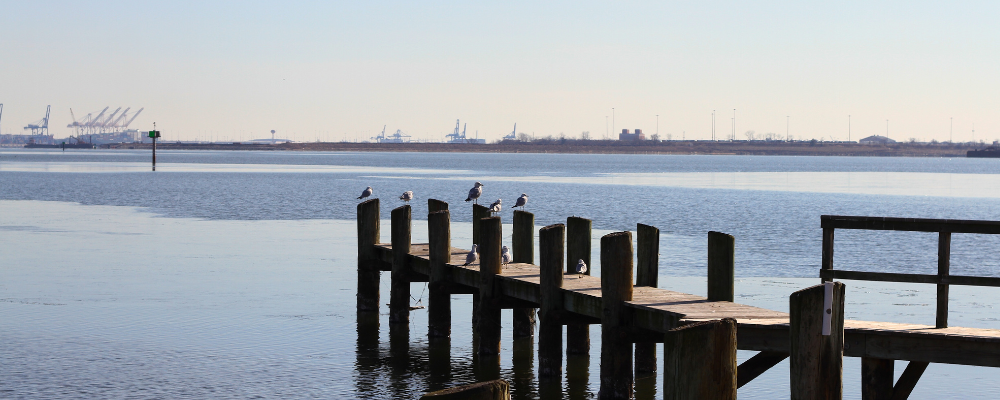Tuesday
Community Articles, Dharma TeachingsClimate & Karma
Shambhala Touching the Earth Collective
By Paul T. Wegner
What the teachings offer to overcome our environmental damage.
People ask: What does it say in the Buddhist teachings about our actions and climate change? In the teachings of the Hinayana we are taught not to cause harm. The path involves becoming aware of our habitual patterns, reducing them and overcoming them. In the Mahayana, as Mathias Pongracz pointed out in a recent Sunday Gathering lecture on the paramitas, the second paramita Discipline covers how we act and includes not causing harm. In the Vajrayana, we have the example of Padmasambhava, who said “my mind is as vast as space and my actions are as fine as flour.”
To review Karma briefly, a karmic act requires intention, a plan, the tools to accomplish our intention and rejoicing when we have achieved our goal. The result is strengthening our tendency toward negative actions. The consequences of these actions affect only ourselves in the future. When they establish a habit, like driving, they become an unquestioned norm, which we share with many others. Interestingly, if we recognize our action as negative, then we do not rejoice and the action does not strengthen the habit. It gets tricky, as usual: when we regret but keep causing harm, that is just another habit! When we go to the grocery store, we have our intention, we pick up our keys and drive there, and afterwards we are happy it was so easy.
Trungpa discussed national Karma in the 1978 transcripts. It is the milieu in which we find ourselves. “You end up in certain situations which you actually cannot blame on yourself. The totality, the whole thing, is made up that way.” On individual karma within national karma: “That situation is not particularly your fault – but on the other hand, you did end up in that particular situation.” Billions of people are participating in this catastrophe.
The first Lord of Materialism is the Lord of Form. He rules by making us seek comfort and convenience. When we rationalize our actions as normal, just seeking comfort, avoiding inconvenience, we are ruled by this Lord. None of this is inevitable; we are trapped in our own perceptions and desires. We are cut off from so many perceptions we have to drive somewhere to enjoy Nature. We heat our houses in the winter, cool them in the summer because we think we deserve it. This is privilege at work, cutting ourselves off from the raw and rugged aspects of ordinary life in modern times. We are missing the interaction with less fortunate people on the bus, the self-sufficiency of wearing two pairs of socks and sweaters in the winter. As Tom Waits sang: “your ignorance is blissful every goddamn time.”
This is not a new problem; It is called the problem of the commons. In England, a village would share grazing ground on the commons. People kept too many of their own animals, selfishly, and as a result, the commons were overgrazed. I did my thesis on oil pollution in Baltimore harbor. I discovered that the overwhelming source of oil in the harbor was from leaking cars. Nobody fixed oil leaks, just added more oil. Half a million cars, 500,000 gallons of oil a year in the harbor. I’m very grateful for having found this insoluble problem. It led me to question and then to find Trungpa and the dharma.
Will refraining from burning and excessive energy consumption make a difference? It will not. We cannot end the momentum alone. When my grandchildren ask me what I did to avert the catastrophe, I can be proud that I did what I could. I gave up my car 25 years ago. I did that because I don’t like feeling guilty, and in turn, I have discovered how to be in the world causing less harm. I wish you the same discovery.
I recommend Naked Lunch by William Burroughs as the definitive text on addiction. He was our friend, ending up teaching at Naropa in the 1980s. The book is earthy and direct. This book played a major role in my becoming a student of Trungpa; practice is the only way to overcome neurotic patterns, including our gasoline addiction.
Paul Wegener first heard Chögyam Trungpa in Washington DC in 1972. Afterwards the old questions about life and meaning clamoured for attention and led him to Tail of the Tiger in the summer of 1974. He stayed for six years, moved to Boulder and eventually became a scientific entrepreneur based on his education in environmental engineering at Caltech and Johns Hopkins. My gratitude and devotion to the Shambhala Teachings and the Kagyu lineage continue.
***
To view the full Mai issue of the Touching the Earth Collective Newsletter please click here.






